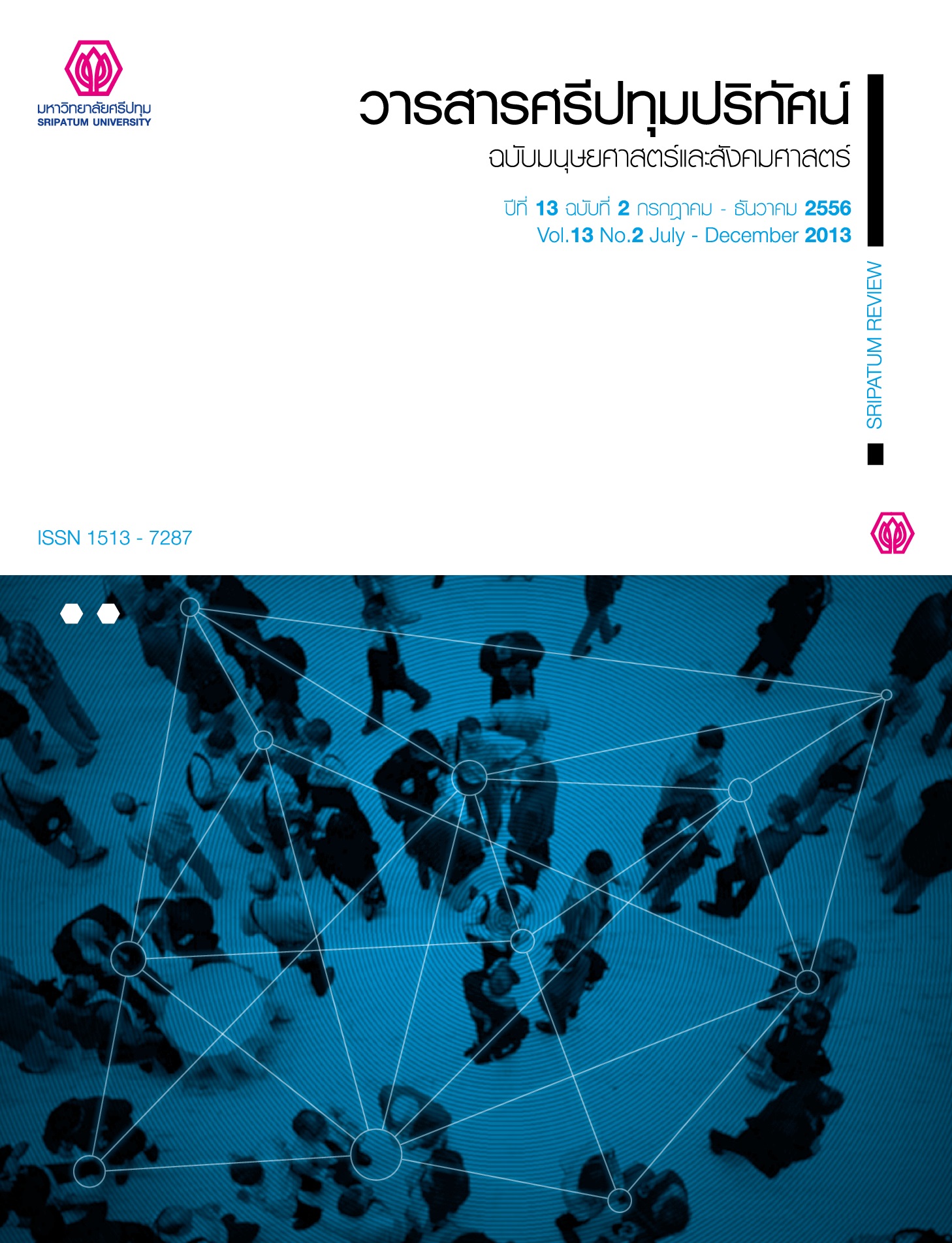HUMAN CAPITAL AND SUSTAINABLE DEVELOPMENT OF THAILAND
Main Article Content
Abstract
This article considers the current situation regarding Thailand’s human capital with the objective to analyze Thailand’s opportunity to achieve the sustainable development in the ageing society. The findings reveal that Thailand’s human capital at this moment is unlikely to enable Thailand to achieve the stable and sustained economic, social and human development in the short-run, causing the low opportunity for Thailand to achieve sustainable development. This is because most Thai people have low level of education and lack sufficient training on marketable skills. Furthermore, the imbalance between the labor market structure and the labor force is also a cause of this problem. It is recommended that the strong and constant public policies to promote education, training and health of Thai people and to match the labor force structure to the labor market are very necessary to create the human capital for Thailand in order to enable Thailand to achieve sustainable development in the ageing society in the future.
Article Details
1. กองบรรณาธิการสงวนสิทธิ์ในการพิจารณาและตัดสินการตีพิมพ์บทความในวารสาร
2. บทความทุกเรื่องจะได้รับการตรวจสอบทางวิชาการโดยผู้ทรงคุณวุฒิ แต่ข้อความและเนื้อหาในบทความที่ตีพิมพ์เป็นความรับผิดชอบของผู้เขียนแต่เพียงผู้เดียว มิใช่ความคิดเห็นและความรับผิดชอบของมหาวิทยาลัยศรีปทุม
3. การคัดลอกอ้างอิงต้องดำเนินการตามการปฏิบัติในหมู่นักวิชาการโดยทั่วไป และสอดคล้องกับกฎหมายที่เกี่ยวข้อง
References
สำนักงานคณะกรรมการพัฒนาการเศรษฐกิจและสังคมแห่งชาติ. (2554ข). ความยากจนและการกระจายรายได้. ค้นเมื่อ 11 พฤศจิกายน 2554.
สำนักงานสถิติแห่งชาติ. (2554ก). การสำรวจภาวะการทำงานของประชากร (รายไตรมาส). ค้นเมื่อ 15 พฤศจิกายน 2554.
สำนักงานสถิติแห่งชาติ. (2554ข). การสำรวจความต้องการพัฒนาขีดความสามารถของประชากร. ค้นเมื่อ 15 พฤศจิกายน 2554.
สำนักงานสถิติแห่งชาติ. (2554ค). การสำรวจความต้องการแรงานของสถานประกอบการ. ค้นเมื่อ 15 พฤศจิกายน 2554.
Becker, G. S. (1964). Human capital: A theoretical and empirical analysis with special reference to education. Chicago: University of Chicago Press.
Birchenall, J. A. (2001). Income distribution, human capital and economic growth in Colombia. Journal of Development Economics, 66(1), 271 – 287.
Dinda, S. (2008). Social capital in the creation of human capital and economic growth: a productive consumption approach. The Journal of Socio-Economics, 37(5), 2020 – 2033.
Fleisher, B., Li, H. & Zhao, M. Q. (2010). Human capital, economic growth and regional inequality in China. Journal of Development Economics, 92(2), 215 – 231.
Heckman, J. J. & Jacobs, B.. (2010). Policies to create and destroy human capital in Europe. Massachusetts: National Bureau of Economic Research, Working Paper Number 15742.
Mincer, J. A. (1981). Human capital and economic growth. Massachusetts: National Bureau of Economic Research, Working Paper Number 803.
Moran, D. D., Wackernagel, M., Kitzes, J. A., Goldfinger, S. H., & Boutaud, A. (2008). Measuring sustainable development — Nation by nation. Ecological Economics, 64(3), 470 – 474.
National Research Council. (1999). Our common journey: a transition toward sustainability. Washington D.C.: National Academy Press.
NEF (New Economic Foundation). (2010). The UnHappy Planet Index 2.0: why good lives don’t have to cost the earth. London: New Economic Foundation.
Nourry, M. (2008). Measuring sustainable development: some empirical evidence for France from eight alternative indicators. Ecological Economics, 67(3), 441 – 456.
OECD (Organization for Economic Co-operation and Development). (2001a). Sustainable development: critical issues. Paris: Organization for Economic Co-operation and Development.
OECD (Organization for Economic Co-operation and Development). (2001b). The well-being of nations: the roles of social and human capital. Paris: Organization for Economic Co-operation and Development.
Son, H. H. (2010). Human capital development. Manila: Asian Development Bank, Number 225.
Spagat, M. (2006). Human capital and the future of transition economies. Journal of Comparative Economics, 34(1), 44 – 56.
Tamura, R. F. (2006). Human capital and economic development. Journal of Development Economics, 79(1), 215 – 231.
UNDP (United Nations Development Programme). (2011). Human development report 2011. Retrieved November 11, 2011,


